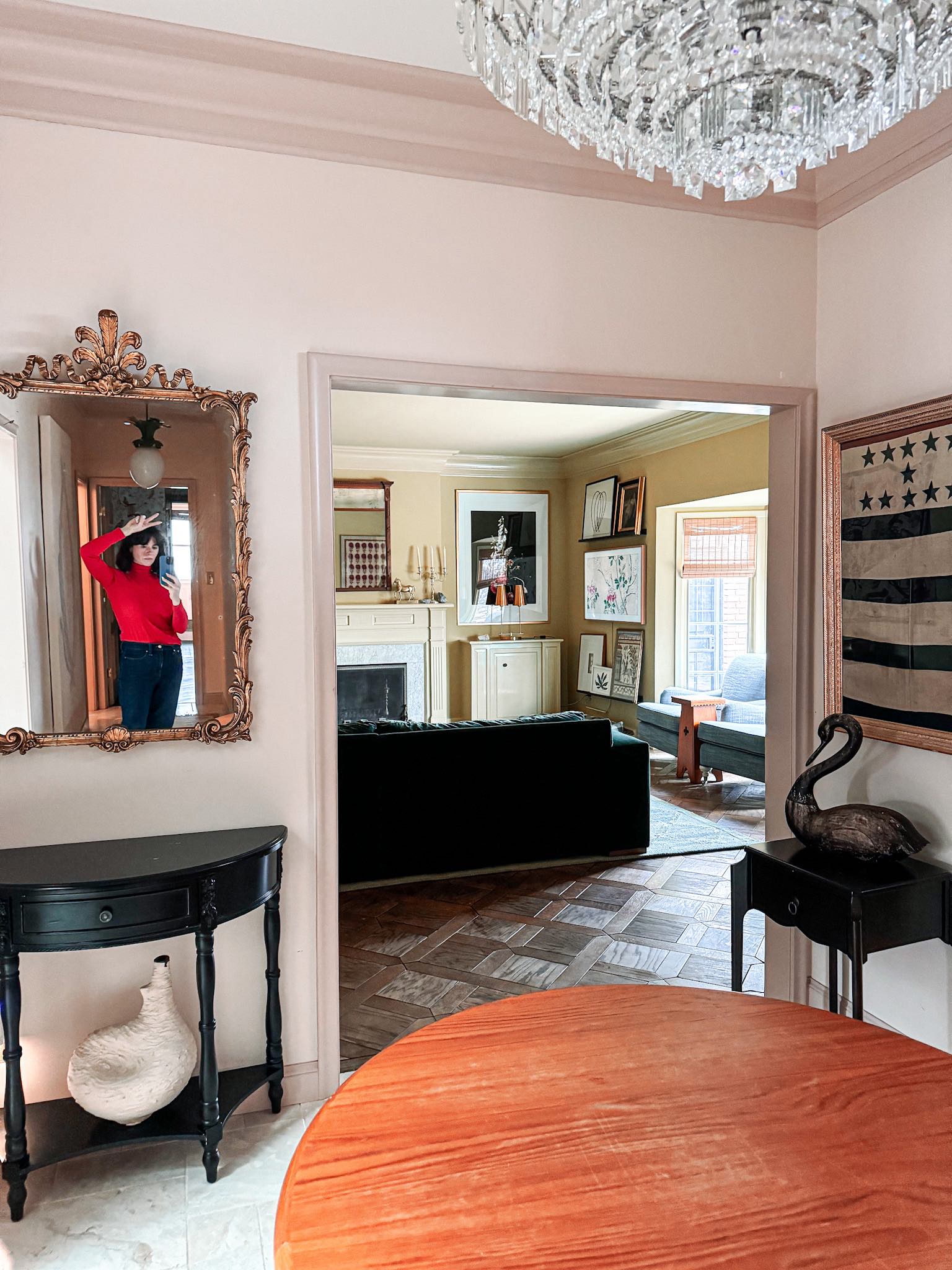
Having recently come out of a prolonged period of burnout and low productivity, I decided to make some shifts to my daily routine and habits in 2024. This period of burnout was not a blip. It was half a decade of slog that led up to taking a serious look at how I spent my time.
My burnout snowballed from a mix of external factors we all experienced (e.g., the pandemic, economic shifts) and internal factors, like processing what it means to get older or looking at life and work as a series of required tasks that had to be tallied to have had a “good” day. Like most women, I thought I could do it all and achieve that elusive promise of “balance” if I just applied myself hard enough. I thought I could do it all despite being in a season of life where my plate was perpetually full, even without an appetite for building a business.
There will be seasons for doing all the things and seasons for doing as little as possible. And isn’t that wonderful? Last year I was pruning my life back, and this year I’m building up a new kind of routine that supports the things that matter most to me: my family, my health, and my creative pursuits (which also happen to overlap a bit with work).
Most importantly, the routine has come from the realization that there is no one way to live. There is no one formula that works for everyone. Letting go of that idea has allowed me to figure out what works best for me.
Sticking to a Consistent Daily Routine in 2024
I don’t do well with an open calendar. Having a long list of things I want to do and no plan for them means they will never get done. I will always have time blindness and an overly optimistic view of how much I can get done in a day. So I created a consistent schedule that has some flexibility for filling in the details but generally looks the same each day. The structure allows my chaotic brain to still do its thing while factoring in time limits and constraints that allow for rest and recuperation.
Below are the foundational elements of this routine. They are boring; they are nothing new or groundbreaking. They work because I’ve made them easy and small enough to do daily.
What My Daily Routine Looks Like Right Now
Early Morning: 4:30 a.m. – 8 a.m.
This time has become a staple in my routine these past few months. I try to avoid my phone during these early hours. And while I usually have this period to myself, when Joe’s out of town, I stop at 7 a.m. and take care of the kids’ morning and breakfast routines. Here’s what this time looks like:
- As long as I went to bed early enough the night before, I rise early (between 4:30 a.m. and 5 a.m.) after sleeping somewhere between seven and eight hours.
- I brush my teeth, make tea, and sit down at my desk while still in my pajamas.
- I focus on the hardest task I need to complete—usually writing—first thing.
- I write a few lines in my journal.
- I balance the budget for both our personal and business expenses.
- I enjoy some coffee and breakfast.
Midmorning: 8 a.m. – 11 a.m.
I get ready for the day and get dressed. Depending on the day, this period is typically for filming, creating content, calls, and meetings. Whenever I need to, I prioritize more focused work somewhere outside of the house like a coffee shop. Sometimes I work out during this time too.
Midday: 11 a.m. – 1 p.m.
I typically take a midday break for lunch. If I didn’t work out earlier in the morning, I fit in some movement. It may be a Pilates class, tennis, or a walk.
Afternoon: 1 p.m. – 4:30 pm
I tackle the easiest work (or sometimes personal) tasks in the afternoon—anything that takes little brain power but requires a bit of time and effort to wrap up. This includes things like emails, additional calls, and tidying the house. I also pick up the kids from school toward the end of the afternoon.
Evening: 4:30 p.m. – 8:30 p.m.
Unless I have a social event scheduled, my evenings are typically for family time. Just like in the early mornings, I try to avoid my phone during these hours. Here’s what this time generally looks like:
- We eat dinner together as a family around 5 p.m.
- We prioritize homework, reading, and hanging out with each other.
- I write things down that are important to remember for the next day.
- I get ready for bed, ideally between 8:30 p.m. and 9 p.m.
- I go to sleep!
Consistency Over Perfectionism
This isn’t what every single day looks like. Rarely is it exactly like this. I only do what I can on any given day. It’s about consistency and discipline, not balance or perfectionism.
The biggest changes between this daily routine and past routines include:
- Writing things down. I never consistently kept lists before this year, but I now know I need them—for me, they’re the first step in combating burnout. When I avoid creating them I know it’s a maladaptive way of dealing with overwhelm.
- Doing focused work before noon. I have the most energy during this time.
- Doing administrative tasks after noon. I have less energy during this time but if I have a list, I can hack through some of it while in my afternoon slump.
- Prioritizing daily physical activity. My brain and mood are dependent on it.
- Intentionally using my phone. I have to use my phone a lot for work, but I’ve noticed how easy it is to lose time without knowing it. It’s not about a loss of productivity, it’s about a loss of energy that comes with it. So I follow some basic rules I’ve found very helpful—mainly, no phone before breakfast and no phone before bed.
While no two days are the same, this routine provides a foundation I can return to after a day that went really sideways, a long vacation away from home, or a late night out with friends when I had one too many glasses of wine. This routine is a gift to me. It’s a way of making it easier to put one foot in front of the other when I know it’s what will make me feel better. It’s the best way to tame (or direct) an overzealous appetite for biting off more than I can chew.
Discover the Routine That Works Best for You
If you’re seeking more consistency and structure in your days, I encourage you to consider the routine that would work best for you. Think about the areas of your life that matter most to you right now and what you want to prioritize each day, then write out a daily routine with those things in mind. Try it out, see how it goes, and adjust as needed. After all, a routine that allows for flexibility is the one that’s most likely to stick.
Next up, I’ll be sharing a post about the wellness practices within this routine that are the foundation for “refilling” my cup when I’ve emptied it. Stay tuned for this article soon!

Kate is the founder of Wit & Delight. She is currently learning how to play tennis and is forever testing the boundaries of her creative muscle. Follow her on Instagram at @witanddelight_.

